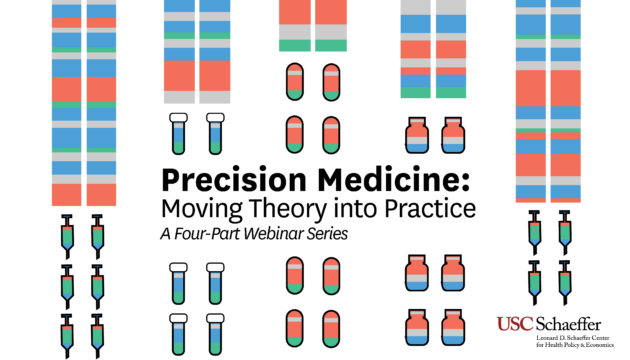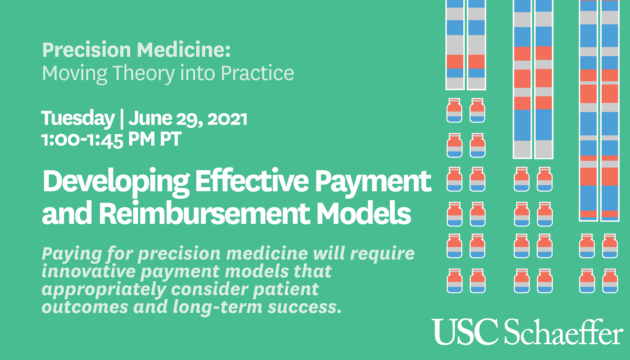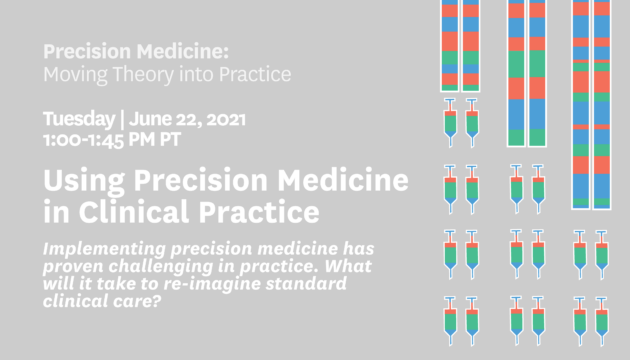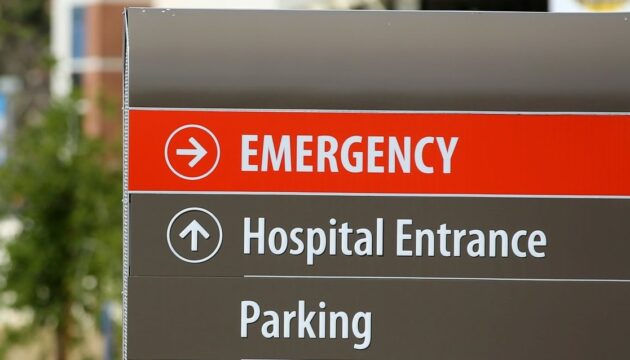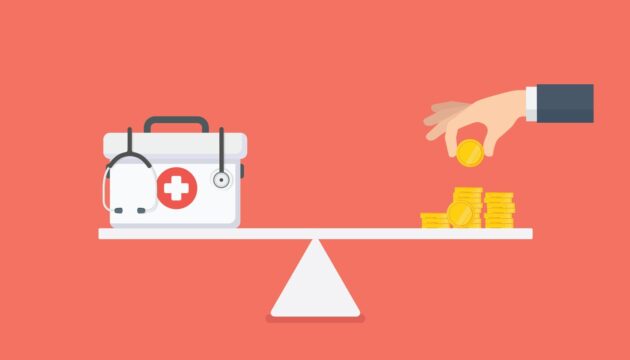Hospitals and Health Systems
Our work in Hospitals and Health Systems
-
Precision Medicine: Moving Theory into Practice
Over a four-part webinar series, Schaeffer Center will bring together experts to discuss how we can move precision medicine from theory to practice.
-
Developing Effective Payment and Reimbursement Models
Targeted therapies can come with significant costs. But successful use of personalized medicine can also result in better healthcare outcomes and reduced long-term costs over time. Given this, how we pay for these therapies may require new approaches and models.
-
Using Precision Medicine in Clinical Practice
Despite its promise and multimillion dollar federal investments, the development and implementation of precision medicine in routine clinical care continues to be slow. How can we translate theory into practice?
-
Access to the 340B Drug Pricing Program: Is There Evidence of Strategic Hospital Behavior?
Some hospitals adjust their measure that identifies hospitals that treat a disproportionate share of low-income patients to gain 340B eligibility.
Categorized in -
The Effects of Vertically Integrated Care on Health Care Use and Outcomes in Inpatient Rehabilitation Facilities
Receiving vertically integrated care in hospital-based inpatient rehabilitation facilities shortens institutional length of stay while maintaining or improving health outcomes.
Categorized in -
The Association of Vertically Integrated Care with Healthcare Use and Outcomes
The researchers examined whether vertically integrated hospital and skilled nursing facility (SNF) care is associated with more efficient use of healthcare and better patient outcomes.
Categorized in -
New Evidence on the Compensation of Chief Executive Officers at Nonprofit U.S. Hospitals
CEOs at hospitals earn substantially less than CEOs of publicly traded companies though more than presidents of nonprofit institutions of higher education.
Categorized in -
California Must Quickly Implement Policies for Tracking and Controlling Health Care Costs and Price Increases
To protect Californians from rising health care costs, the state needs to strengthen price transparency and price competition, according to Melnick.
Categorized in -
Preparing For The Next COVID-19 Crisis: A Strategy To Save Safety-Net Hospitals
The authors warn against impending waves of morbidity from hospital closures and propose a comprehensive plan to protect vulnerable safety-net facilities.
Categorized in -
Global Budgets Offer Financial Cushion Amid the Coronavirus Pandemic
Maryland’s unique payment system has helped bolster healthcare providers in the state. As revenue from elective care dried up, global budgets helped protect facilities by providing a continuous flow of funding.
Categorized in
